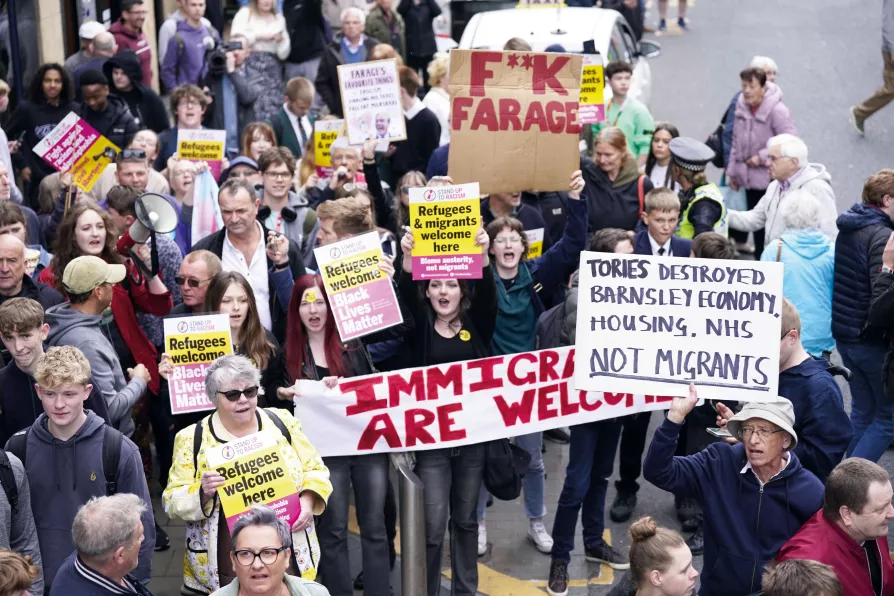Honduras may not be as much in the spotlight as Venezuela and Cuba right now, but Trump's circling vultures are making their move. JOHN PERRY reports

 OUTSIDE PRESSURE: Protesters greet Farage’s battle bus in Barnsley
OUTSIDE PRESSURE: Protesters greet Farage’s battle bus in Barnsley
THE Guardian journalist Aditya Chakrabortty recently wrote a typically to-the-point piece about Nigel Farage, what Faragism really means and why it has an impact.
Farage is standing for an eighth time as a parliamentary candidate in Clacton, having lost on seven previous occasions. He has been elected as an MEP — but as part of a party list that did not specifically require voters to ponder if they wanted to back him personally.
It’s difficult to see Farage being overly keen on up to five years as MP for Clacton. It would significantly constrain his media and money-making roles — and his US jaunts.

Every Starmer boast about removing asylum-seekers probably wins Reform another seat while Labour loses more voters to Lib Dems, Greens and nationalists than to the far right — the disaster facing Labour is the leadership’s fault, writes DIANE ABBOTT MP

While Spode quit politics after inheriting an earldom, Farage combines MP duties with selling columns, gin, and even video messages — proving reality produces more shameless characters than PG Wodehouse imagined, writes STEPHEN ARNELL

While Hardie, MacDonald and Wilson faced down war pressure from their own Establishment, today’s leadership appears to have forgotten that opposing imperial adventures has historically defined Labour’s moral authority, writes KEITH FLETT











